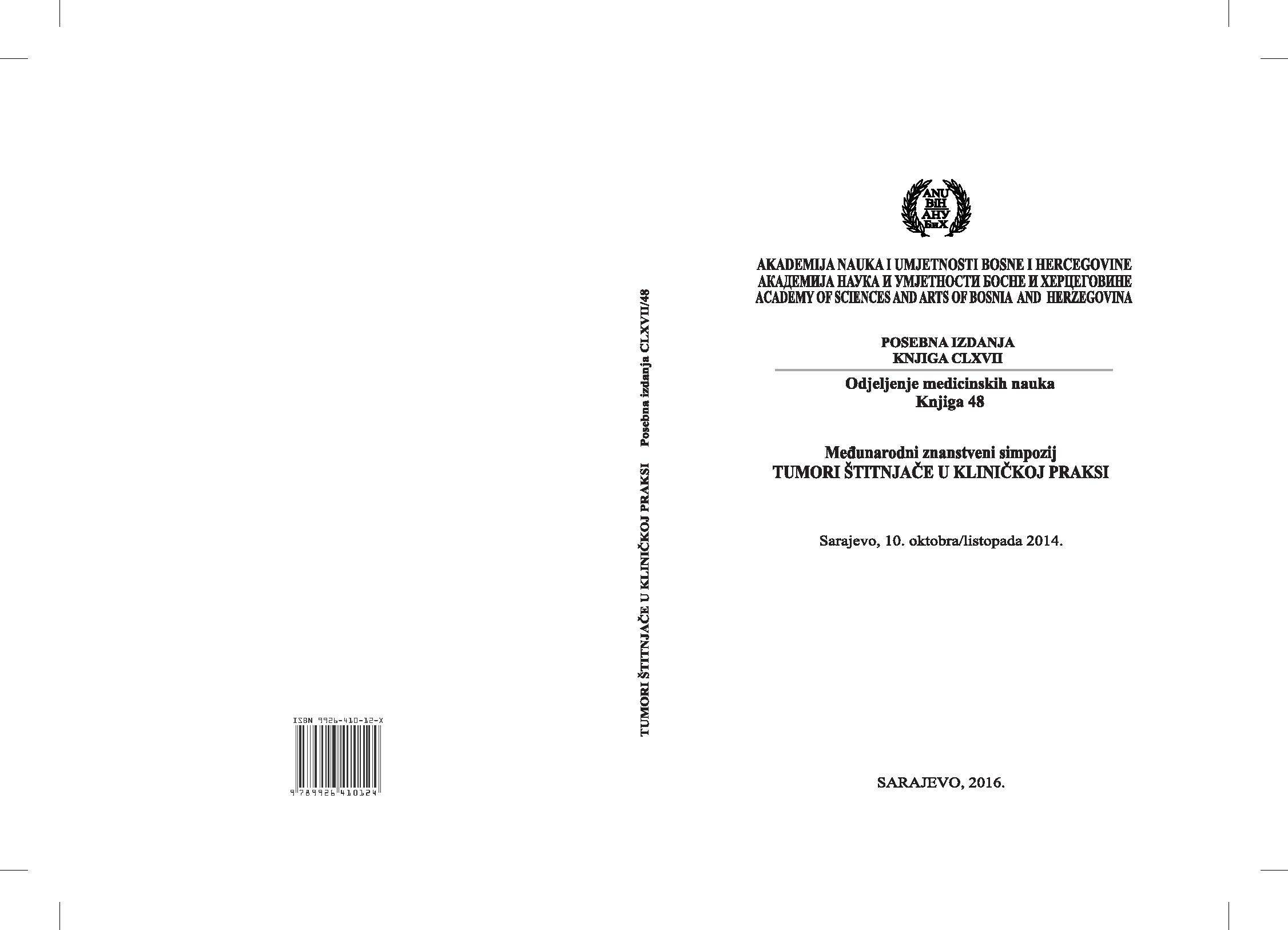HIRURŠKA TERAPIJA KARCINOMA ŠTITASTE ŽLEZDE
SURGICAL MANAGEMENT OF THYROID GLAND CARCINOMA
Author(s): Ivan PaunovićSubject(s): Health and medicine and law
Published by: Akademija Nauka i Umjetnosti Bosne i Hercegovine
Keywords: well differentiated carcinoma (DTC); medullary carcinoma (MTC); anaplastic carcinoma (ATC); thyroid gland;
Summary/Abstract: Aim: There is still no clear solution for appropriate surgical management of thyroid gland carcinoma. Background: Thyroid gland carcinomas are most frequent carcinomas of endocrine organs, but rare comparing to the carcinomas of other localizations. Unlike other carcinomas, surgical treatment of thyroid carcinomas is primarily the best way of treatment, which means that the thyroid carcinomas are surgical disease. The origin of the cells of the thyroid gland from which the cancer arises determinates histopathological and clinical classification of the thyroid gland carcinomas as well as treatment and follow-up. Well-differentiated (papillary and follicular carcinoma) (DTC) and undifferentiated (anaplastic carcinoma) (ATC) are thyroid carcinomas of the follicular origin. Medullary thyroid carcinoma (MTC) arises from the “C” (calcitonin producing cells) cells of the thyroid gland, which are still incorrectly referred as parafollicular cells even though that “C” cell can be found intrafolliculary. Methods: The published studies were analyzed and compared with author’s personal experience in connection with surgical management of different types of thyroid gland carcinomas. Discussion: In the field of thyroid surgery for DTC discussion about appropriate type of surgery for DTC lasted previous thirty years and from the author opinion will last next thirty years. The author’s thirty year experience in the field of thyroid surgery is that every patient either with preoperative confirmed DTC, or patient with suspicious DTC should be approached individually. Type of the operation should depend of the local findings, age, presence or absence of cervical lymphonodopathy and presence or absence of distant metastases. Compared to DTC, there is no doubt that total thyroidectomy with central node dissection is appropriate surgical procedure both for sporadic and hereditary MTC. From author’s experience ATC diagnosis in the region of Western Balkans is often established lately, when only tumor reduction in order to deliberate trachea is possible. Since, in this area, the ATC is commonly found with coexistent multinodular goiter in author’s opinion, continuous control of these patients and emergency operation in case of FNB biopsy diagnosed ATC are highly recommended. Conclusion: Endocrine surgeon must always have a clear idea about surgical approach to the patient with thyroid gland carcinoma. Preoperative and intraoperative evaluation of the surgeon and the surgeon’s ability to understand the unique characteristic of thyroid gland carcinomas compared to carcinomas of other localizations are still the basis of the successful operation.
Journal: Posebna izdanja Akademije nauka i umjetnosti BiH
- Issue Year: 2016
- Issue No: 4
- Page Range: 85-94
- Page Count: 10
- Language: Serbian

